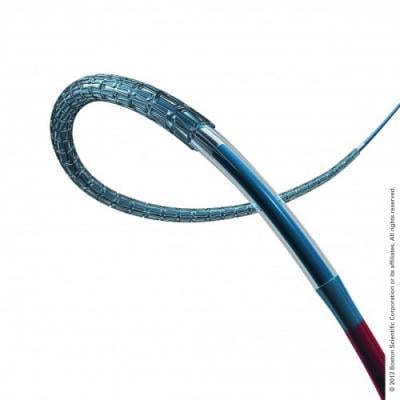
September 17, 2013 — In a significant milestone toward obtaining additional key regulatory approvals for the Synergy drug eluting stent system, Boston Scientific Corp. has completed enrollment in the EVOLVE II randomized, controlled clinical trial. The EVOLVE II trial is designed to further assess the safety and effectiveness of the Synergy stent system and support U.S. Food and Drug Administration (FDA) and Japanese regulatory approvals for the treatment of atherosclerotic coronary lesions. The Synergy stent uses the market-leading everolimus drug and features an ultra-thin directional polymer coating that is absorbed by the body shortly after drug elution ends at three months.
The EVOLVE II trial began in November 2012 and has now completed enrollment of 1,684 patients at 125 sites worldwide, including the U.S., Canada, Europe, Australia, New Zealand, Japan and Singapore. Boston Scientific received CE mark approval for the Synergy Stent System in October 2012.
The EVOLVE II clinical trial builds upon the EVOLVE study, which was a prospective, randomized, single-blind, first-in-human use study comparing the Synergy stent system to the PROMUS Element stent system, which uses a durable polymer coating. Two-year outcomes with the Synergy stent in EVOLVE were presented earlier this year at the EuroPCR Scientific Program in Paris and showed low rates of target lesion revascularization (1.1 percent) and no stent thrombosis with the Synergy stent throughout two years.
Patients enrolled in the EVOLVE II trial will be followed for five years. The Synergy stent system is an investigational device in non-CE mark countries and is not available for sale in the United States and Japan.
For more information: www.bostonscientific.com


 January 05, 2026
January 05, 2026 









